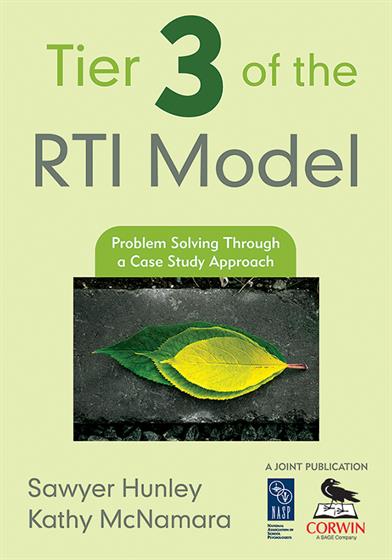Preface
Acknowledgments
About the Authors
1. Introduction to RTI and the Case Study Model
Context and History
The Response to Intervention Process
The Case Study Model and Prereferral Intervention
Summary
2. Assessment Principles and Practices
Assessment Methods
Assessment at Tier 1
Assessment at Tier 2
Assessing Behavior
Summary
3. Facilitating Response to Intervention in Schools
School Psychologist as Systems Change Agent
Evaluating the System
Goal Setting
RTI Implementation
Summary
4. Problem Identification
Tier 1
Tier 2
Tier 3
Behavioral Definition of the Problem
Problem Certification: Establishing the Severity of the Discrepancy Between Actual and Expected Performance
Formulating Intervention Goals
Planning Data-Collection Activities for Baseline Measurement and Progress Monitoring
Assessment of Factors Related to the Problem
Summary
5. Problem Analysis
Generating Hypotheses
Primary and Secondary Dependent Variables
Types of Hypotheses
Intervention Selection
Hypothesis Testing
Summary
6. Single-Case Design
Single-Case Design and Hypothesis Testing
Single-Case Design and Progress Monitoring
Choosing a Single-Case Design
Summary
7. Intervention
Selecting Research-Based Interventions
Intervention Integrity
Linking Interventions to Hypotheses
Characteristics of Effective Academic Interventions
Characteristics of Effective Behavioral Interventions
Targets of Intervention
Summary
8. Evaluating Case Study Outcomes
Visual Analysis
Conducting Visual Analyses
Magnitude of Change
Choosing, Calculating, and Interpreting Effect Sizes
Quality of the Outcome: Goal-Attainment Scaling
Choosing Evaluation Methods and Judging Outcomes
Summary
9. Using the Case Study to Determine Special Education Eligibility
Disability Versus Eligibility Determination
Responsiveness Versus Resistance
Using Case Study Information for Special Education Eligibility Determination
RTI and Specific Learning Disabilities
Decision Making in Eligibility Determination
Technical Adequacy of Decision-Making Practices
Eligibility Decisions
Summary
10. Program Evaluation
Case Study Structure
Case Study Rubric
Case Study: Morgan
Case Study: Reggie
Evaluation of School Psychology Services and Programs
Case Study Fidelity
Intervention Integrity
Magnitude of Change
Goal-Attainment Scaling
Summary
References
Index



